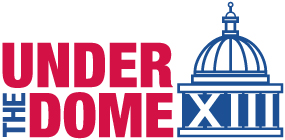
LEGISLATURE FEELS THE HEAT FROM TAXPAYERS
California’s 2019 legislative session recently came to a merciful end, with over 1,000 bills sent to Governor Gavin Newsom for his signature or veto. But as often happens, it was the bills not sent to the governor that will bring taxpayers the most relief. Chief among these proposals was the most dangerous threat to Proposition 13 in the last five years, which thankfully was defeated.
Proposition 13 has been called the third rail of California politics. Touch it, and the electric shock risks ending your political career. However, few have been as bold in their attack on this landmark proposition as Assembly Member Cecilia Aguiar-Curry, D-Winters. She introduced Assembly Constitutional Amendment 1 (ACA 1), a bill to make it easier to raise taxes at the local level by lowering the vote needed to approve bonds and special taxes from two-thirds to just 55 percent.
Typically, direct assaults on Prop. 13 fail to receive votes of the full Assembly or Senate. It is difficult for Democrats in marginal or suburban districts to support these bills, so legislative leaders hesitate to bring them to the floor for a vote. But emboldened by a two-thirds legislative supermajority in the Assembly, Aguiar-Curry attempted to muscle the bill through.
ACA 1 received just 44 votes, 10 votes shy of the 54 needed for passage. Seventeen of 61 Democrats either opposed or abstained on the bill. While we are thankful that Proposition 13 remains intact, we are under no illusions that the battle is over. Aguiar-Curry has already publicly pledged that she intends to try again.
The defeat of ACA 1 is not the only victory for taxpayers. Interestingly, a number of punishing tax-hike proposals never came up for full legislative votes. These included Senate Constitutional Amendment 5, which would have lowered the vote required to pass local education parcel taxes from two-thirds to 55 percent. Other proposals that didn’t make it to floor votes were taxes on handguns and ammunition, sweetened beverages, water from your tap, opioids, tires and crude oil as it comes up out of the ground.
Also not coming up for a vote were proposals for an estate tax in addition to the federal exaction, and a sales tax on previously exempt business-to-business services. All told, Californians were spared tens of billions of dollars in tax hikes because the proposals stalled early in the legislative process.
Unfortunately, two taxes were passed by the Legislature. Assembly Bill 142 doubles the existing $1 car battery tax at the point of sale to $2. Two Republicans provided the critical votes for passage. The other tax was Senate Bill 96, which will impose a surcharge of up to 70 cents per month on your cell phone bill to pay for a new statewide 911 emergency service.
Recent devastating disasters in Sonoma and Napa counties, Paradise and Montecito highlight the need for an upgrade. But the surcharge could result in revenue totaling $400 million annually, far more than the $175 million of one-time funds needed to replace the system. This tax hike is yet another example of California’s misplaced priorities, because funding public safety should always have the first call on general fund revenue without the need to raise taxes.
Why were several Democrats reluctant to jump on the tax hike train? Three reasons stand out. The first was the recall of Josh Newman, the state senator who was removed from office last year following his votes on the gas tax, cap and trade and single-payer health care. Second, the massive failure of Measure EE in June, a large parcel tax proposed by the Los Angeles Unified School District, caused politicians to rethink California’s appetite for higher taxes. Third, recent polling this year shows little appetite for regressive property tax increases. Various Public Policy Institute of California (PPIC) polls show Proposition 13 with over 60 percent support, roughly the same amount it was approved by over 40 years ago. A majority of Californians across all demographics and geographic locations oppose increased local parcel taxes. And a potential upcoming commercial property tax increase, called split roll, is already opposed by a majority of Californians before the statewide ballot measure campaign against it has even begun.
Coming into 2019, many HJTA Members called our office, clearly discouraged over what they perceived to be a dominant Democrat supermajority ready to take apart Proposition 13. But the forces in favor of tax hikes were not successful, in no small part because of the phone calls and emails from all of you. No matter how large the supermajority, when the public is informed about what its government is doing, it’s the taxpayers who come out on the winning side. Thank you for your advocacy that makes such victories possible.
As I write this, Governor Newsom is signing and vetoing hundreds of bills, a process he has until October 13 to complete. HJTA submitted letters to him on 14 bills. Visit our Legislative Action page to see his final position on these bills. For thirteen years now, it remains a pleasure to serve you in the hallways of the state Capitol.
HJTA.org is your source for everything Proposition 13 and for information valuable to California taxpayers. For more information or to take action, go to HJTA.org/take-action.
Published by the Howard Jarvis Taxpayers Association (HJTA). Copyright © 2019 by Howard Jarvis Taxpayers Association. All rights reserved.

